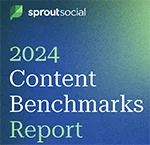 |
| Ronn Torossian |
Audio platform Clubhouse was valued at less than $100 million at the end of last year. A month later, that valuation hit $1 billion. That’s pretty impressive for an invite-only app that launched only last year.
Similar to when Twitter or Facebook first launched, companies are now wondering whether they should utilize the voice-powered social media network in their public relations and marketing campaigns. Although that decision depends largely on the nature of the business itself, Clubhouse is proving to be a useful tool for practically everyone.
Messaging and control
When creating a room within the Clubhouse app, companies should always have a moderator who has the option to allow others to participate in the conversation. All it takes is a press of a button, and anyone can be added or removed from the group of participants. Having a moderator means conversations and messaging will be largely controlled, which is beneficial in these types of voice apps, as things can get loud quickly.
Fortunately, rooms can easily be set up to allow only a single person or a small group of speakers to be active. Meanwhile, participants are able to listen in on the conversation while it’s happening in real-time.
Content lifespan
As great as Clubhouse is, there’s a notable downside when it comes to brands looking to create communities within the app's audiences, which is the short lifespan of the content itself. This is similar to other social media platforms, such as Snapchat, TikTok and even Instagram’s Story feature.
What this means is that unless the content itself ends up going viral in the very short amount of time, it’s not going to be able to engage audiences continuously. There are no ways for audiences to find or reference clubhouse content once the show is over, and it’s not going to be discoverable unless it gets shared many times among a lot of people.
However, that also comes with another nuisance, which is that Clubhouse isn’t a platform that’s indexed by Google. Not being indexed means any content that’s shared on the platform isn’t going to be recorded or be visible for search engines in the future. Furthermore, one of the first community rules on the platform is that users aren’t allowed to record any of the platform’s discussions.
All of these factors mean that Clubhouse is an exciting new platform that can be used as a tool in various effective ways. At the same time, however, the app still doesn’t have analytics capabilities or any other ways to measure the effectiveness of PR or marketing efforts, leaving it up to individual businesses to decide whether or not this tool will be effective in their promotional efforts.
***
Ronn Torossian is CEO of 5WPR, a leading PR agency.


 What if companies could harness the fury of online outrage into a force for good? This is precisely where companies can start turning the trolls into brand champions.
What if companies could harness the fury of online outrage into a force for good? This is precisely where companies can start turning the trolls into brand champions. Audiences interacted with brand content far more often on Facebook and Instagram in 2023 than they did via X (formerly Twitter), according to a report that tracked engagement trends across different social networks.
Audiences interacted with brand content far more often on Facebook and Instagram in 2023 than they did via X (formerly Twitter), according to a report that tracked engagement trends across different social networks. Can public relations help counteract the dissension fostered by the power of digital platforms to spread hate, fear and confusion?
Can public relations help counteract the dissension fostered by the power of digital platforms to spread hate, fear and confusion? The number of Americans who get their news from TikTok has quadrupled in the last three years, according to a recent Pew Research Center report.
The number of Americans who get their news from TikTok has quadrupled in the last three years, according to a recent Pew Research Center report.


 Have a comment? Send it to
Have a comment? Send it to 
No comments have been submitted for this story yet.